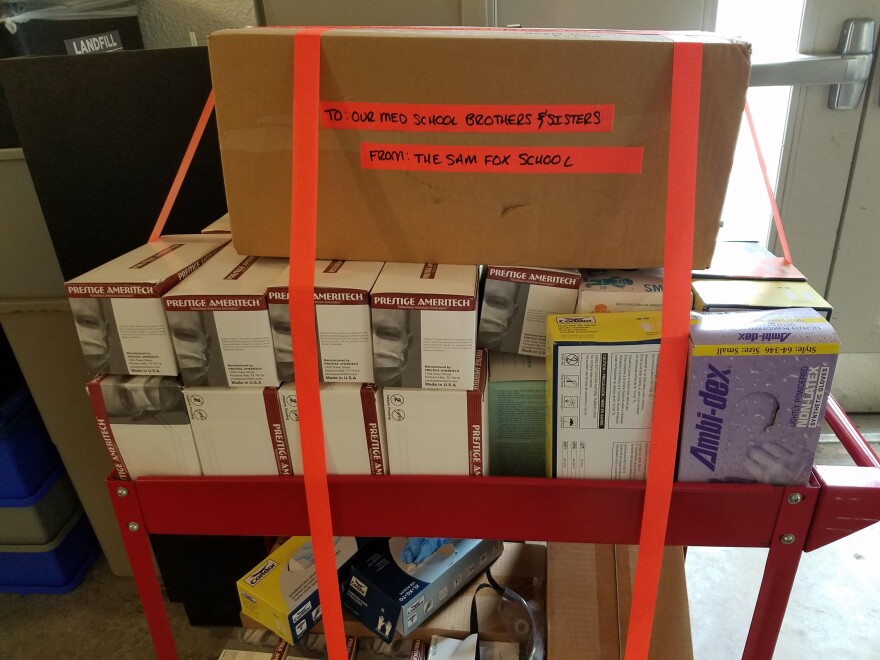St. Louis-area trade groups are asking workers to donate their stores of personal protective equipment to medical workers to protect them from COVID-19.
Nurses and doctors at St. Louis hospitals have sounded the alarm about a limited amount of masks, gloves and other protective gear. A surge in global demand has depleted the supply, and many front-line medical workers worry that they won’t have equipment to keep from contracting the virus from sick patients.
Local professional organizations have responded by asking professionals to donate their stockpiles of personal protective equipment to hospitals in need.
“They’re coming in constant contact with this disease, and the facts are showing that there’s a shortage of this stuff,” said Greater St. Louis Labor Council President Patrick White. “If we can get it to the folks that need it, get it to the folks that are protecting us, we’re protecting them and keeping them on the front line.”
The most critically needed items such as N95 respirator masks aren’t only used by medical workers, White said. Carpenters, mechanics and construction workers use them to keep from breathing in particles in the air.
Many contractors buy the equipment in bulk and have a supply that would last them months or years.
Earlier this week, White asked contractors to donate their reserves. Once he gets supplies, he’ll deliver them to the National Nurses United union at St. Louis University Hospital to distribute the equipment where it’s most needed, he said.
Local chemists at research labs also have stepped up to donate equipment.
“Our members as a group span industry and academia and teaching,” said Washington University chemistry professor and American Chemical Society Local Chair Sophia Hayes. “There are all these other islands of P.P.E. that could be tapped into.”
Many lab scientists are furloughed. As they have less need for the equipment, the demand among health professionals has skyrocketed, she said.
The local chapter of the ACS earlier this week sent out an email to more than 1,500 colleagues asking them donate to local medical schools and hospitals if they had equipment on hand.
There are other nonchemistry fields that likely have a store of protective gear, too, she said, including tattoo artists and screen printers, Hayes said.
Webster University and Washington University have also donated their supplies to hospitals and medical schools in the region.
Health care workers are lobbying the federal government to implement the Defense Production Act, which would ramp up domestic manufacturing of protective equipment and medical supplies.
Follow Sarah on Twitter: @petit_smudge
Our priority is you. Support coverage that’s reliable, trustworthy and more essential than ever. Donate today.
Send questions and comments about this story to feedback@stlpublicradio.org


